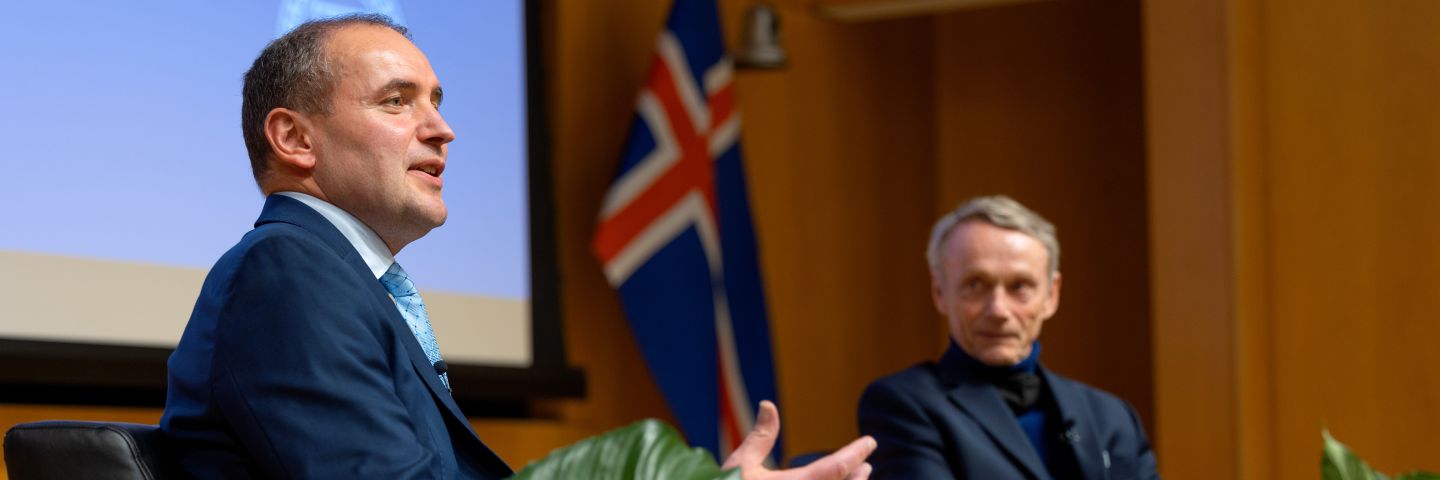An Enduring Legacy: The Beginning and Development of the Frank H. Golay Memorial Lecture Series

By James Nagy, SEAP Administrative Assistant
As featured in the Spring 2021 SEAP Bulletin, this article explores the life of SEAP's infamous Frank H. Golay Memorial Lecture Series. Through this lecture series, the SEAP community has had the honor of hearing many acclaimed scholars speak about their work in the field of Southeast Asian Studies.
When Frank H. Golay passed in late summer 1990, it was scarcely a week before donations started arriving at the SEAP office from colleagues, former students, and friends; all were seeking a way honor the late professor and former SEAP Director. Within two years, over forty individuals had contributed to a memorial fund set up in Golay’s name. In consultation with his widow Clara and the SEAP faculty, it was decided during the 1992-93 academic year that a memorial lecture series would be established to “examine the prospects facing Southeast Asian studies” and to call “attention to innovative lines of research for demonstrating the integrity and value of Southeast Asian studies”[i]
Trained as an economist, Frank H. Golay not only became a respected Filipinist, but also a strong proponent of interdisciplinary approaches to the developing area studies field of Southeast Asia. Beyond his academic work, Frank H. Golay played a significant part in the establishment of SEAP, being one of its Directors (1970-76), head of the Philippine Project (1967-73), and head of the London-Cornell Project (1968-70). Indeed, his actions during his directorship largely enabled SEAP to remain financially stable and even prosper throughout the ensuing decades, even as funds elsewhere dwindled.
Recalling Golay’s contributions to the academic culture and vitality of the Program, the first three speakers of the newly established Frank H. Golay Memorial Lecture were not chosen haphazardly. Rather, there was a sense that the choice of the inaugural speakers and the associated topics and themes would set the tone not only for the series, but also for the future of SEAP and even the field of Southeast Asian studies more broadly, which faced uncertainty and instability in light of changing disciplinary interests, among other pressures, after the Cold War.
Economist Erik Thorbecke, a SEAP faculty member, was chosen to be the inaugural lecturer in order to highlight possible new avenues of research in the field of Southeast Asian Studies and address the field from within. In 1996, Oliver Wolters remarked to then-Director Randy Barker the hope that Thorbecke’s lecture would suggest “what the future could mean for the Program when the Program responds to those who are urging it to extend the range of its academic concerns.”[ii] As Thorbecke represented both the humanities and the social sciences in a vein similar to Golay himself, Thorbecke was chosen in order to highlight the fundamental link between these different and often competing disciplinary interests in area studies.
Erik Thorbecke’s inaugural lecture,[iii] “The Political Economy of Development: Indonesia and the Philippines,” was not merely a comparative study between these two Southeast Asian nations, but rather sought to synthesize theory and data in both the humanities as well as the social sciences in order to pose new questions about how these fields might work together in the advancement of Southeast Asian Studies. READ MORE
[i] SEAP internal memo from Oliver Wolters to SEAP Director John Wolff concerning the Golay lecture series’ inclusion in the Program’s NRC proposal, pg. 2 (October 8, 1996).
[ii] SEAP internal memo from Oliver Wolters to SEAP Director Randy Barker, p. 1 (October 25, 1993). Many of these same thoughts can be seen in Wolter’s 1994 article “Southeast Asia as a Southeast Asian Field of Study” (Indonesia 58, October 1994).
[iii] Later published under the same title by SEAP Publications.

